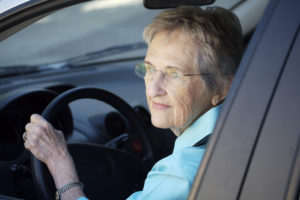
However, the leading Los Angeles Home Caregivers Services advise there are some measures family members can take to ensure seniors are safe on the road. The best way family could help is introduce their senior loved ones to vehicles that are designed to be safe to handle by anyone. Additionally, professional caregivers referred by A Better Way in Home Care can monitor their health condition and limit their access to their vehicle accordingly.
Mandatory Health Checks Ensure Safety behind the Wheel
Even if your senior loved ones don’t suffer from any of the more serious medical conditions like Alzheimer’s, there are still some conditions that get worse with age. These can significantly impact the seniors’ safety behind the wheel. Some of these conditions include hindered vision, which makes driving at night especially difficult. Aging also affects our motor skills, resulting in slower reflexes and impaired flexibility. This is why it is vital you consult a physician to determine whether your senior loved ones are fit to drive.
Conditions that Impair Driving Skills
If your senior loved one insists on driving, instruct their caregiver to pay special attention to some of the issues that could affect their driving skills. For starters, seniors who do not engage in physical activity are more likely to have difficulties with driving. If your senior loved one is not getting any exercise, some mundane tasks drivers perform every day like looking over their shoulders may prove to be quite a challenge.
If your senior loved one has impaired sight or hearing, they might find driving especially difficult. This is especially true for driving at night. This is why it’s important to subject seniors to annual screenings. Finally, the elderly with a chronic health condition may be at risk every time they take the wheel. In this case their symptoms are not the only thing to worry about. Some medication used to battle these symptoms can make seniors sleepy or dizzy, putting them at extreme risk every time they take the wheel.
Things to Look For in a Senior-Friendly Car
The car your senior loved one drives can make all the difference when it comes to their safety in traffic. The right car for your senior loved one is a car designed to overcome any obstacles that come with old age. Some of the features the ideal car for any senior should have:
Air Bags: Due to bad eyesight, old drivers sit closer to the wheel. You should take this into account when looking into the vehicle you are purchasing. Check if the airbag deployment system can be adjusted for short drivers.
Pedal Placement: Seniors often confuse the pedals, which can result in a serious traffic accident. This is why it’s important to find a car with the gas and pedal brakes placed further apart.
Seatbelts: Seniors often suffer from impaired flexibility, which can make a task such as reaching over their shoulder for the seatbelt impossible. When shopping for a car, make sure your senior loved one can access the seatbelt with ease.
Blind Spots: The same lack of flexibility can make it difficult for seniors to look over their shoulders, and vehicles with many blind spots pose an even greater risk. Therefore look for a car with fewer blind spots and solid mirror coverage. Additionally, you could look into vehicles with back-up cameras.








